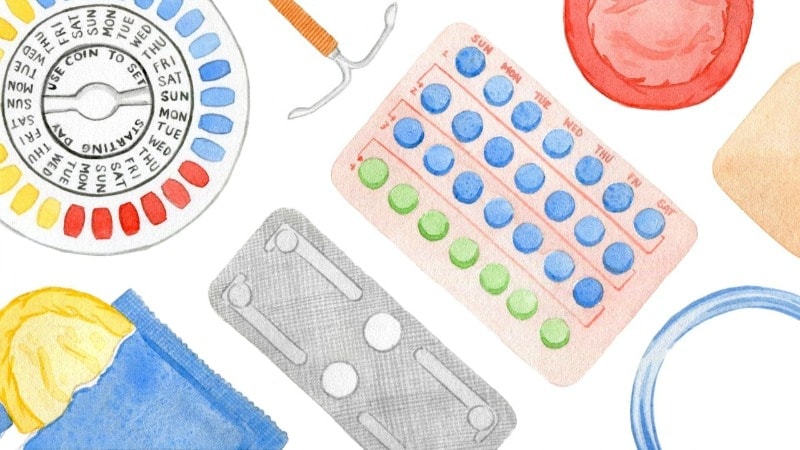
Wow, this post has been a long time coming!
While the birth control pill has been revolutionary in providing women with an immense amount of freedom, we are not getting the full story.
>> Do you truly know how your birth control works?
After listening to this podcast, touching on early marketing ploys behind the birth control pill, I hit my breaking point.
Do you know what they brought to my attention? When the birth control pill first came out in the 1960’s, women started to feel uneasy because at first, it made their periods disappear. To combat this unsettling feeling, manufacturers of the pill added in a week of placebo pills so women could have a breakthrough bleed every 28 days and still feel like they were having a “normal period”, even though it’s not a real period at all.
They could have chosen every 40 days or 45 days but they specifically chose 28 days to mimic a natural menstrual cycle (which can range from 28-36 days).
UGHHH. The nerve.
Let’s trick women into thinking they are functioning normally so they don’t ask questions when in fact, their hormonal cycle is turned off. Can you imagine if men took a pill everyday to turn off their 24-hour hormonal cycle?? It’s unheard of, but women are told to suck it up and deal with the side effects.
***Let me preface this by saying I’m not against the birth control pill. Some women simply prefer to be on it. No judgement coming from me because at one point, I was on the pill too. I’m purely here to share what I’ve learned, coming from a wellness perspective. I’m not a doctor, I don’t know your body or your health history and I’m not telling you what to do. All I ask is for you to have an open mind, consider your options and question everything.
YOU are in control of your body. YOU need to take responsibility by educating yourself on what you are putting into it.
Sixty-two percent of women of reproductive age (age 15-44) are currently using contraception, the pill being the most commonly used form of birth control.
For those of you that have been on the pill, I’m curious, did your doctor explain how the pill works? That it stops ovulation, menstruation and natural cyclical change altogether? While also depleting the body of key micronutrients (like vitamin B2, vitamin B6, vitamin B12, vitamin C, vitamin E, magnesium, folic acid, zinc, and selenium) that keep hormones in balance in the first place?
In my 10 years on the pill, not one doctor relayed any of this. I also didn’t know what to ask because I was young and wasn’t sure how the pill worked exactly nor did I care. Talk about lack of education and awareness. What multiple gynecologists said to me? The pill would balance my hormones (how ironic), clear up my skin and eliminate cramps, which brings me to my next point.
- Are you experiencing acne? Get on the pill.
- Do you have painful menstrual cramps or periods? Get on the pill.
- Are your periods irregular? Get on the pill.
Oral contraception has evolved into a miracle cure for all things women don’t want to deal with, often times being used as a treatment to eliminate menstrual symptoms and “balance hormones” more so than its intended purpose of contraception. We hit a certain age and the pressure clock starts ticking, as if going on birth control is some right of passage to becoming a woman. Get on the pill and sweep your symptoms under the rug for a later date. Oh, and also gain freedom to be sexually free.
Ladies, we don’t all of a sudden become menstruating teenagers and what is missing from our diets is the birth control pill.
We are not deficient in birth control and in no way does the birth control pill heal, fix or balance anything cycle-related, as so many of us are told by our doctors. We’re talking about a medication that stops your natural cycle from happening which in turn, reduces said symptoms because the power has been shut down, unplugged and turned off. Don’t forget the week of placebos for a breakthrough bleed to make you feel “normal”!
>> Okay… so what does the pill do, exactly?
- The pill provides low doses of estrogen and progestin/progesterone to interfere with communication between the brain and ovaries. This disrupts the hypothalamic pituitary ovarian axis and prevents ovulation (the release of an egg) which prevents pregnancy. To work, it must do all of these things.
- The pill also prevents the body from producing fertile-quality cervical fluid. Sperm can?t live inside your vagina or travel anywhere near your eggs without fertile mucus, thus preventing pregnancy.
- Lastly, the pill stops your uterine lining from fully developing (the lining that either houses an embryo or ends up being shed during menstruation). So, if an egg were to somehow get fertilized, it would have nowhere to implant and you would not get pregnant.
All of this can come at a cost because the pill often brings nasty side effects, am I right? Despite feeling totally disconnected from my body and not like myself, I stayed on the pill for 10 years because that’s what you do. It’s important we don’t gloss over possible side effects, because they can be detrimental and make you feel crazy. Not all women have bad experiences with the pill, but the majority experience negative side effects, sometimes without even realizing it until they go off the medication, and the “veil is lifted”, which is how I felt.
Possible Side Effects of the Birth Control Pill:
- headaches, migraines
- spotting, breakthrough bleeding
- weight gain
- decreased libido
- breast tenderness
- nausea
- mood swings, depression
- irritability, anxiety, panic attacks
- yeast infections
- blood clots
- decreased lubrication, painful intercourse
- altered levels of gut bacteria
- vitamin and mineral deficiencies (as mentioned above)
- increased risk of cervical cancer
- increased breast cancer risk
Did you know 63% of women go off the pill within the first year due to unwanted side effects? Is it worth it to take a pill everyday and experience these possible side effects, when there are alternative options?
>> I don’t ovulate or menstruate on the pill. What’s wrong with that?
The birth control pill works by disrupting the healthy function of your endocrine system. One may think meh, no big deal, who wants a real period anyway? I get that, but periods equal power and I promise, they can be pleasant. By taking away the natural cycle that is apart of you and makes you who you are, that valuable mind-body connection is lost. Think of it like this: with a natural cycle, you are plugged in and switched on. You can see, feel and hear what’s going on internally. Take that away and you’re unplugged, switched off and left in the dark.
You’ve lost that useful, insightful connection that is POWERFUL and should be used to your advantage, let me tell you!
>> What about hormone-based IUD’s?
A hormone-based IUD releases synthetic progestin in the uterus, preventing pregnancy. While the amounts of the synthetic hormones in these devices are far less than in oral contraceptives, ovulation and menstruation can still be suppressed, as it does interfere with natural hormone ratios. It all depends on your body’s reaction. Even though they contain less hormones, they still release a sufficient amount, or else they wouldn?t work. Some women have issues with them, some do not.
Any synthetic hormone you put in the body will come with side effects, it’s as simple as that. For some women, the mechanics of the IUD don?t work. It is very personalized and different for everyone. After everything I’ve learned, I would recommend the copper IUD instead (which I talk about below). A 2016 study revealed that the hormone-based IUD actually holds a higher risk of depression than the pill, which is something to consider.
>> What are the Benefits of Having Regular Periods?
Your 5th Vital Sign: Women have 5 vital signs – body temperature, pulse rate, blood pressure and respiration rate, with menstrual cycles being the 5th vital sign. This is important because your period serves as a monthly report to help monitor what’s happening in the body by providing unique insight into your hormonal, reproductive, thyroid, metabolic, and bone health.
Provides Health Clues: In missing early clues of a certain imbalance, you may miss the chance to address any issues early on. Hints can be anything from the color of your period blood, cramps, irregular periods, breast tenderness, PMS, painful periods, acne, or mood swings to fatigue, weight gain, depression, high cholesterol, high blood pressure, etc. It’s your body’s way of telling you that it may not be balanced to its fullest extent. You will not experience these clues while on synthetic birth control.
Naturally Cleansing: The menstrual period is a natural cleansing and waste removal process. Releasing bacteria and discharging excess iron lowers your risk for cardiovascular disease, stroke and Alzheimer’s. Bleeding can also act as an emotional release and time to let go of anything or any thoughts that no longer serve you. This offers a sense of well-being along with peace of mind and clarity, so you may experience clearer intuition and get the answers you’ve been looking for. During or right before your period, you may cry more easily. This is the time for internal healing and/or spiritual work. Remember, periods are power and are so intricately intertwined with what’s happening in life.
Awakened Libido: Oh, hello! Have we met before? If you’ve been on the pill for a while, your libido is definitely suppressed, maybe even asleep. During a natural cycle and leading up to ovulation, you will notice an increase in arousal and naturally, you’ll be in the mood for sex (whether you want a baby or not). This is also when you will feel most confident in your body and feel the most beautiful from the rise in estrogen. Not to mention, regular ovulation is associated with improved breast health, bone health and heart health.
Ability to Cycle Sync Your Life: Being able to sync your life up to each cycle phase works to your benefit! You guys know I cycle sync my life in every way possible. This means changing the foods I eat, exercise I do and activities I plan to match each phase of my cycle. This is a tremendous advantage and one that every woman should experience if she can. Riding the rhythmic wave helps you identify changes in cervical mucus (which is healthy, not gross) to confirm where you are at in your cycle. You’ll know when you have increased energy to leverage intense exercise and know the days to rest, as well as what foods to eat and when to boost your health and overall well-being. This is what cycle syncing is all about and in order to do this, you need to have a natural cycle which is not possible on birth control.
Longevity: Your period slows the aging process! Women age more slowly than men because of iron loss during menstruation. Losing iron via blood can lengthen lifespan.
Track and Plan Your Fertility: Getting to know your menstrual cycle is key to helping you learn, plan for, and make informed choices about fertility. Like clockwork, you’ll know when your period is coming! There’s something empowering about tracking your cycle and being so in tune with your body. When something is off you just know it, and that is a huge health advantage.
>> You can only get pregnant 3-4 days out of the month, during ovulation!
Are you still sold on that fact that every time you have sex, you can get pregnant? This false statement has been hammered into our brains since we started sex ed in 4th grade and is entirely fear-based. You can only get pregnant when you’re ovulating. Now, this gets complicated if you don’t know your cycle, when you’re ovulating or what to look for, but it’s easy to learn and is one of the many benefits of getting to know your cycle. Please see this article to learn more about tracking.
You can’t trust the period tracking apps to be perfect, but the MyFLO tracker app is what I use and is pretty spot on for me, as long as I’m checking in the with app everyday and entering in my symptoms. During this time, practice safe sex and use a condom with spermicide, or avoid sex completely the few days before and after ovulation, to avoid the risk of getting pregnant. Fertile mucus can keep sperm alive in your vagina for 3-5 days, so plan accordingly. There are three fertile signs: Cervical Mucus, Basal Body Temperature, and Cervical Position that help you identify where you’re at. This is an entirely different topic that I’m working on for my next post. I want to include everything in one, but it would become way too long and I have to break it up!
>> Non-Hormonal Birth Control Methods and Alternatives
- Male Condoms Yes, people use condoms and they’re always in style. If any man tells you otherwise, he is not the man for you. If he loves you, he will respect your body! When used correctly, condoms are 98% effective, just as effective as the pill at preventing pregnancy, but people aren’t always perfect and this lowers their effectiveness rate to 85%. For extra precaution, use condoms with spermicide only when you’re ovulating because it can be irritating.
- Family Planning/Fertility Awareness Method This is what I primarily use.The Fertility Awareness Method is a natural hormone-free method of birth control that involves learning to interpret fertile signs to know what days you are actually fertile, because it is not everyday. The key to understanding when you?re fertile and when you?re not, is cervical mucus. If you are trying to avoid pregnancy, and you abstain from unprotected sex on the days you could possibly get pregnant, your chances of actually getting pregnant are slim to none. This is why, when the fertility awareness method is used correctly for birth control, it is 99.4% effective in preventing pregnancy.This is also an entire post in itself, but there are hundreds of articles and resources available. Start out with the MyFLO tracker app or the Kindara app and begin to learn your cycle. It may take 2-3 cycles to fully grasp what is happening, and even longer if you are coming off the pill and your periods are out of whack. To get your periods back on track, get my Hormone Healing Recipe & Lifestyle Plan, and start tracking/cycle syncing your life!
-
The BBT Temperature Method (Basal Body Temperature)
The Temperature method is most reliable when combined with the Fertility Awareness Method above, which involves tracking cervical mucus. The two methods combined can have a success rate as high as 98 percent. This method is another way to pinpoint the day of ovulation so that sex can be avoided for the few days before and after peak ovulation days. It involves taking your basal body temperature (which means your temperature upon first waking every morning, before sitting up or doing anything) with an accurate ?basal? thermometer (it’s more precise than a regular thermometer). Then, after ovulation takes place, you’ll note the rise in temperature that occurs. This helps you figure out which days to avoid sex and over time, you’ll recognize your own fertility patterns.
You can use a basic digital basal thermometer like I do, or a Smart thermometer. There are also devices like the Daysy or LadyComp that determine your fertile days and when you are ovulating by recording, analyzing and storing your temperature and menstrual cycle data. ?It will alert you on the days when intercourse may lead to pregnancy, including the day you ovulate and the five days before ovulation. - Copper IUD (non-hormonal) also known as ParaGard The only hormone-free IUD. It’s effectiveness is no different than the hormone-based IUD’s. If you want an IUD, it?s better to avoid the synthetic hormones and get the copper IUD. It releases a small amount of copper into the uterus, obviously, to prevent sperm from fertilizing eggs. Sperm doesn?t like copper which makes it almost impossible for sperm to reach an egg. This is an excellent option for many women because it doesn?t suppress ovulation and you still experience real periods which means you can track each cycle phase, monitor your menstrual health and reap the benefits of a natural cycle. It?s over 99% effective for preventing pregnancy and lasts 12 years. There are some side effects to keep in mind that some women experience and some do not. At the onset of use, it can cause heavy menstrual bleeding that usually subsides over time. Other possible side effects include heavier periods, cramping, pain during insertion, discomfort during sex, and spotting between periods, etc.
Feeling connected to your body and understanding the natural, cyclical changes you were born to experience each month is POWERFUL and makes you a stronger, healthier woman.
Okay, this was a long post!
I could go on and on and have so much more to say, but I have to end it here and continue on in a separate post, which I’m already working on! I hope you ladies have found this helpful and I’d love to hear your thoughts on this topic and if you use a natural method, which one do you use/follow?
I’ll be doing follow up posts on How to Detox From Birth Control, How To Pinpoint Ovulation and Natural Menstrual Products, along with many more. In the mean time, please check out my Hormone Balancing Plan to get started on your journey, or order my new book, The Happy Hormone Guide, (releasing on September 10th)!
xoxo,
Shannon


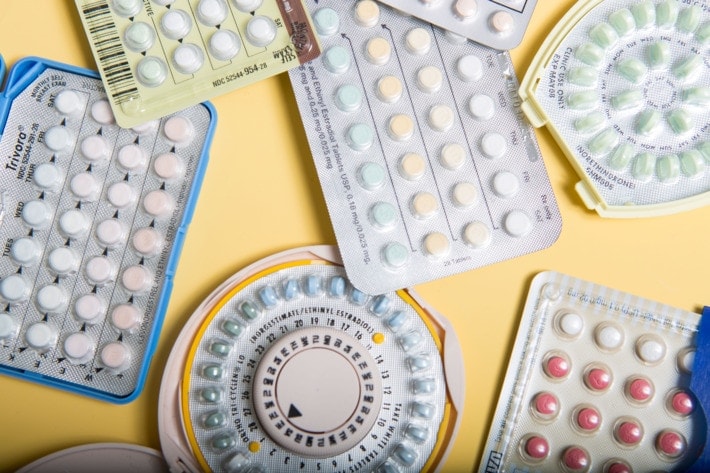
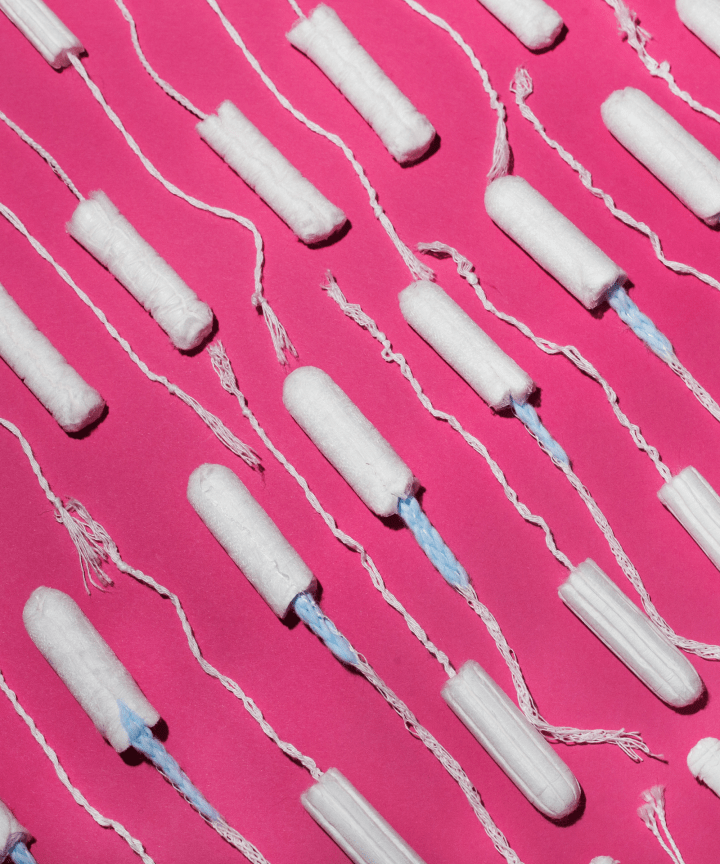
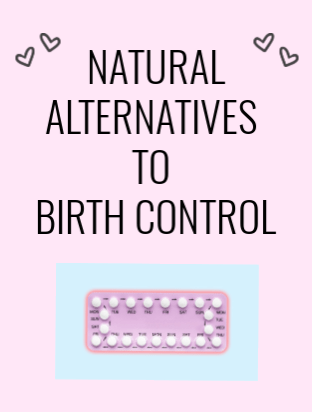
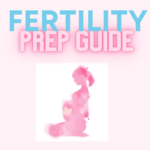

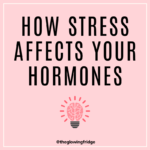
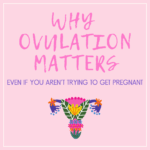

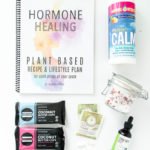






You CAN get pregnant when not ovulating, I’m living proof Sperm can live up to 5 days in the woman’s body!!!
Hello.
This has given me a lot to think about in terms of ways to prevent pregnancy. As a teenager I had such bad periods I would turn pail, vomit, exhaustion and severe pain (laying in the nurses office in high school). Doctors eventually tried birth control pill which helped but then I started having symptoms so i switched to mirena. That was am a horrible experience as getting put in but i got thru it and felt okay with it being longer than 6 months of ‘spotting’. I had back spasms and cramped about as bad as when i was teenager before birth control. I have had the IUD checked to make sure it is okay but I am still bleeding a lot and having painful periods. Im thinking of my next steps but I am scared to go off of birth control all togehter because of what I experienced as a teenager. I cant take a week off work because of my period and lay in the high school nurses office. Ive tried the pill and IUD. Anyone else struggling with options?
I would never accept an IUD, they can migrate in the body and even perforate your uterus. I think it’s best to use an app like you said 🙂 IUDs are painful to insert and doctors lie to you about the level of pain
I just went to the doctor for the first time in a loooong time, and she never mentioned other options other than the “Loestren” pill (apparently the lowest amount of hormones one can get in a pill idk) after reading this though, I’m probably going to ask her about other options. Thank you for this post, I love how honest it is. Thank you for educating the masses 🙂
This is a really informational post! I got off bc simply because I was inconsistent with it, and after a while realized I was doing fine without it. I definitely want to look into using the tracker apps as a natural birth control method. Thank you for investing your time and knowledge in writing this!
Hi Shannon! Just wanted to thank you for this thoughtful post and for advocating for natural fertility tracking and managing of cycles! I never knew much about this subject until earlier last year, when my then-fiance and I took a class on natural family planning. At the time, it seemed like an unrealistic, overwhelming plan, but after a few months of charting, I began to understand my body’s natural rhythm (I didn’t even know I had one-I had always thought I had “irregular” periods until I actually tracked them via my app and found that they are actually very predictable!). My husband and I have been using this method to postpone pregnancy at this time and will eventually use it to hopefully achieve a pregnancy once the time comes.
I am honestly so grateful for this natural alternative to traditional BC (I once went on it in high school, never again! Also, I had 1 family member and a friend develop blood clots from their birth control, it’s not a mythical side effect, unfortunately). I love that this method keeps us in tune with our body instead of stifling its symptoms with a pill, and am so saddened that the BC industry has been so successful in indoctrinating women and tricking many into thinking we need a pill to “regulate” or fix us. I also appreciate that natural tracking involves my husband and makes *him* accountable as well-we look over my charts together each month so he is aware of + responsible for confirming with me my fertile and non fertile periods. Men should be involved in the process as well, and my husband actually finds it fascinating 🙂
I will save this post to share with friends and family in the future (I have found there is often hostility but also interest in this subject:)-thank you so much!!
Hi Diane,
I don’t think you read the post in it’s entirety. Everyone is entitled to their opinion, but Medical News Today is not a credible source, and neither is Healthline or drugs.com or any of the other articles you linked. The only credible source is from PubMed… those findings aren’t surprising to me because we know the pill turns off your natural rhythmic cycle so you don’t have the hormonal fluctuations that often contribute to altered moods… and that doesn’t make the pill healthy by any means.
This probably isn’t the blog for you to follow as we focus on holistic, healthy living with natural alternatives to prescription drugs.
Shannon,
Where are your sources? Do you consider your website a credible source for medical science? If not, please show me the credible sources in which you used to write this article. There is nothing wrong with alternatives to prescription drugs that are backed by science. Please enlighten me with where you’ve read your information.
Wow- that post was really informative. Definitely dispelled some things for me.
Personally I went on birth control at 13(super young u know) because I suffered from such severe periods I coukdng move. Endo and pcos run in my family so though I never got the tests I suspect that’s what was going on for me. Every period would flare my autoimmune disease which I’ve had since I was 4, and it was just miserable. It has definitely been a big help. I couldn’t deal with life as I do now if I had my periods on top of it. I have the iud.
It does make sense what you’re saying about it disrupting the whole system. But I don’t know what else I could do. Are there no herbal birth controls? Like herbs to induce menopause or again isnit still that it would be disrupting the whole system? Definitely will share this post with my girls.
You said that a period could be pleasant, but you never mentioned how or why. I personally am on hormonal birth control because A) I was tired of looking jobs because I had to call out sick once or twice a month and B) I was flat out tired of 3-6 days of severe pain that led to blackouts and vomiting, and heavy bleeding that required I stay up all night changing out my pads lest I bleed through my mattress.
Second, posting links next to your claims would be helpful and evidentiary support (scientific articles, not a podcast) would lend your article more credence. As a result, some of this stuff seems legit, but the others just feels like woo.
Same 🙁 my periods were so painful i’d blackout, vomit and not be able to do work – thus why i went on the pill. And yet, author doesn’t give any natural alternatives for women who are on the pill because of this type of painful periods…
I recommend focusing on replenishing your mineral stores and reading Beyond The Pill by Dr. Jolene Brighten for insight into how to support your body while on the pill.
I thought that it was really interesting what you said about tracking your period as a form of birth control. I have to admit that I haven’t used this before, but I understand the concept and think it would be interesting to try out. I will stick with my traditional birth control for now, but you’ve given me some great ideas.
Thanks for sharing this information! I am just coming off birth control and educating myself about the entire menstrual cycle. Your posts have been super helpful – can’t wait to read more!
Excellent post, Shannon! Thank you so much for educating and bringing awareness to this topic! xo
Thank you so much for this post! It was SO well researched and thought out–i learned SO much! I stopped using BC after my wedding and primarily used the family planning method. It worked to both AVOID pregnancy and get pregnant 🙂
I think once you’ve balanced your hormones (heyyyy hormone healing plan!), you can get your cycle more regular and trust your body and it’s timing.
Thank you so much for listening to Heavy Flow! I am so thrilled that our conversation had such an impact on you and your work.
xx Amanda
Thanks for posting this!! I always reacted poorly to hormonal BCP (I was one of the people who became heavily depressive when Yasmin was a thing) and I couldn’t even do paragard! When I had our youngest, I opted to have a bilateral salpingectomy to prevent further pregnancy and my doctors have STILL tried to push the pill to manage the symptoms of my adenomyosis. Like, seriously? No thanks.
Hi Natalie! I feel ya, I was on Yaz for years. Just curious for my next post – what kinds of side effects did you experience with Paragard? And I will have to look up bilateral salpingectomy but thats interesting… like why would they want you on birth control after that??!!
This post is amazing, Shannon! Thank you! I’ve been off birth control for 3 months and feel so much better and have been using the MyFlo app. Can’t wait to read your next post!
Aw thanks Liz!! Can’t wait to talk to you about it more 🙂 miss you!